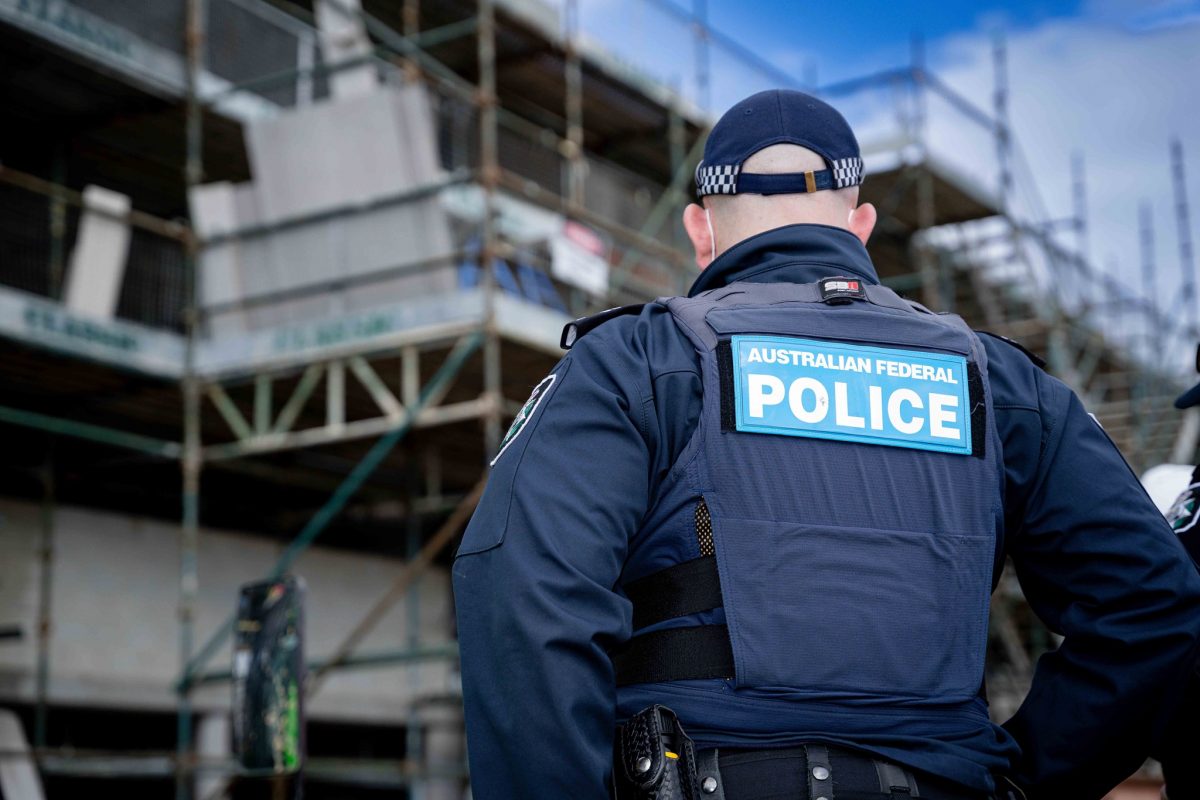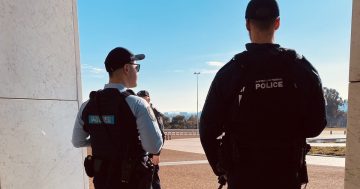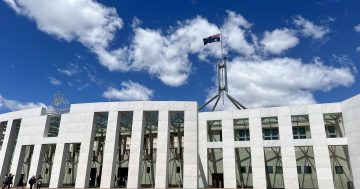
AFP union members will vote on whether to take protected industrial action over its pay dispute. Photo: ACT Policing.
Australian Federal Police union members – which includes ACT Policing officers – are weighing up whether they’ll take protected industrial action as their pay dispute drags on.
The Australian Federal Police Association (AFPA) asked the Fair Work Commission for approval to vote on the option earlier this month which president Alex Caruana said was necessary “due to the restrictiveness” of the non-APS bargaining parameters and the Federal Government’s Public Sector Workplace Relations Policy 2023.
“We believe that the AFP wants to reward appointees but is hamstrung by the policy and locked into an 11.2 per cent pay rise over three years, with no new allowances,” he said.
“We want to be proved wrong, but we don’t think the government and APSC are willing to allow the AFP to improve their offer.”
The union has argued members are not being paid enough for the “life-threatening work” they do each day to protect the community.
Over the past weekend AFP and ACT Policing officers were allegedly shot at by a man armed with a compound bow.
Mr Caruana has argued that the incident showed just how underpaid officers were for the risks involved in their jobs, in comparison to other police services across Australia.
“We had two officers shot at by a man wielding a compound bow. Those members could have been killed, along with the alleged offender,” he said.
“The officers showed great restraint when they were justified in strongly considering all their options — including the possibility of employing lethal force.
“While the officers may be okay physically, this will take a mental toll on them. We don’t know what harm has been caused by this incident, and it may take a while for that harm to surface.”
AFP appointees are also employed as Protective Service Officers at the Australian Centre to Counter Child Exploitation (ACCCE) and help local and international partners seize illicit substances.
In 2022-23, the ACCCE charged 186 offenders with 925 child exploitation-related offences and received more than 40,000 reports of child sexual exploitation. Each report contained images and videos of children being sexually assaulted or exploited.
Meanwhile, the AFP helped seize nearly 100 tonnes of illicit substances, equating to more than $22 billion across the globe.
Mr Caruana said this showed AFP appointees were not your average public service.
“Can you give me the name of another department that undertakes work similar to the AFP or whose staff are regularly exposed to the same physical and physiological trauma that AFP appointees are?” he asked.
“An 11.2 per cent pay rise over three years isn’t sufficient acknowledgement of the challenges and risks our members undertake every single day.
“They are already the lowest base-paid police officers in the country and deserve more than just the nominal pay rise offered to the broader public service.”
He argued this showed key personnel within the Commonwealth and Australian Public Service Commission didn’t understand the operational risks faced by appointees during each and every shift.
“The government should be embarrassed by their belief that the same police officers and Protective Service Officers that protect them and ensure their safety aren’t worth more than a blanket pay rise figure calculated by people with little understanding of operational policing,” he said.
“AFP appointees don’t enjoy the benefits of flexible workplace arrangements readily available to other Commonwealth employees and public servants.
“Stopping child exploitation and counter-terrorism can’t be done from your kitchen table and spare bedroom.”
If members do vote for protected industrial action, it’s understood it will be in the form of messaging on vehicles and from officers. It is not expected there will be strikes at this stage.





















